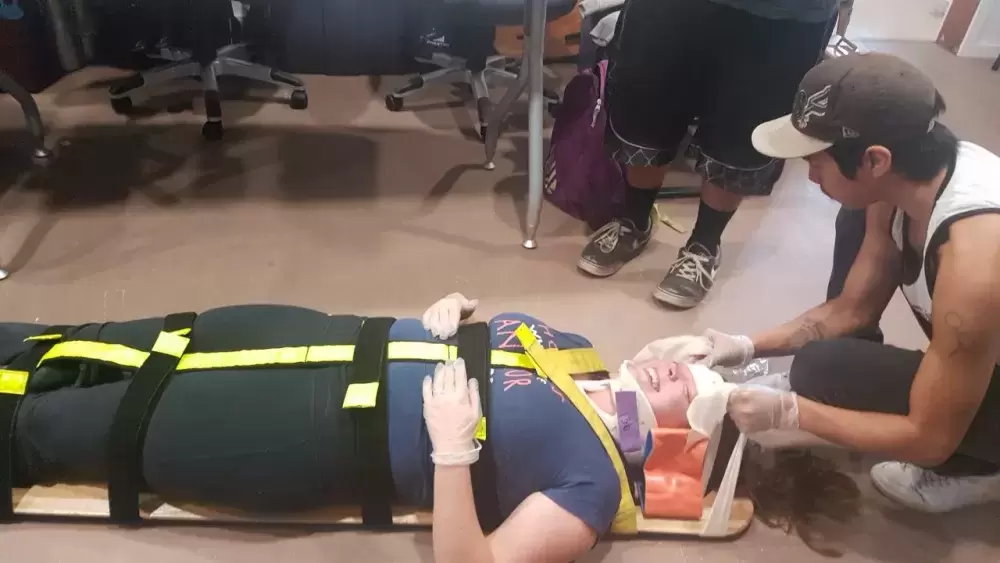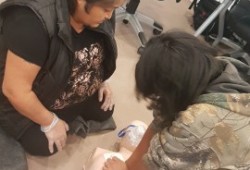A dozen newly certified Central Region first responders completed their exams on November 5, 2017 in what Debra Swartz, an Ahousaht health consultant, describes as a “critical part of emergency response services” for the Flores Island community.
The course, taught by Emre Bosut of Tashii Paddle School, ran from Oct. 30 to Nov. 3 in Ahousaht. It was launched with 18 students, two from Ucluelet First Nations, one from Hesquiaht and 15 from Ahousaht. Overall, 12 passed the licensing exams conducted in Tofino by Tofino Fire Chief Brent Baker.
Marcie Callewaert, one of the newly trained first responders and the Ahousaht First Responder Coordinator reflected on how challenging the course was.
“It was a seven-day course crammed into 5 days,” she said.
It helped, she said, that it built on training she’d previously had in Occupational First Aid 1.
“It was really good,” said Callewaert. “I forgot how much I still know from OFA I. So it was building on top of what I knew from the previous course”
“Everyone’s favourite day was spinal immobilization. We nominated people to be the ‘patient’ and then flipped them upside down (after they had been immobilized on the clam shell).” said added. “It was fun because everyone worked really well together as a team and just the hilarity of flipping people upside down.”
From Ahousaht, Marcie Callewaert acknowledged participants; Julia George, Swan Campbell, Margaret Charlie, Marceline Jack, Alfred Dick, Karen Frank, Paul Sam, Rosalie Williams, Genny John and Greg Charlie. Project Coordinator from the Clayoquot Biosphere Trust, Brooke Wood also acknowledged participants Janine Adams from Hesquiaht and Celena Cook and Jay Miller from Ucluelet First Nations.
In the big picture, Debra Swartz said, “this is really only a small piece of the whole puzzle and Ahousaht really needs more funding and support to have a robust first responder.”
Swartz reflected that Ahousaht, a community of over 1000 people, doesn’t have an ambulance station and relies on volunteers.
“Relying on community volunteers puts an unfair burden on the community,” she said. “In most rural communities there’s a whole team assembled to deal with emergencies. There’s first responders and paramedics. Ahousaht hopes to have paramedics down the road, but doesn’t have that right now. When we think of this last week with the storms making it impossible to do travel in and out of the community, having only a handful of first responders in the community left the community vulnerable.”








